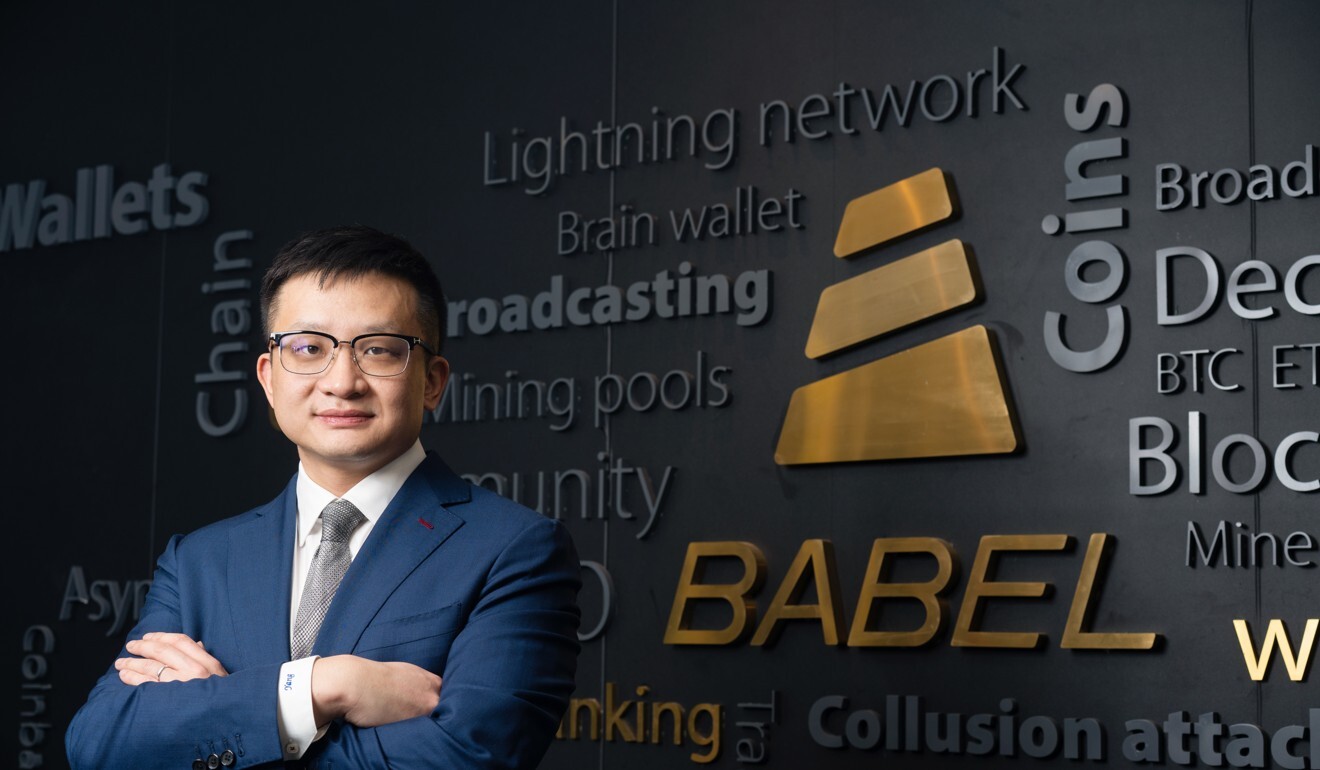
Chinese cryptocurrency financial services firm Babel Finance rides the mainstream wave with US$40 million Series A
- From geek-only to institutional, cryptocurrencies are becoming mainstream
- Babel Finance, a Hong Kong-based crypto financial services firm, has just raised US$40 million from Sequoia Capital China and Tiger Global Management
“Education [of investors on bitcoin] isn’t necessary any more,” said Flex Yang, founder and CEO of the Hong Kong-based cryptocurrency financial services firm, in an interview with the South China Morning Post. “The crypto market has evolved from geek-only to institutional and professional.”
The value of bitcoin, the largest cryptocurrency by volume, has doubled since the start of the year after big Wall Street firms dabbled in the exchange. BlackRock added bitcoin futures as a potential investment for two of its funds, and Goldman Sachs relaunched its cryptocurrency trading desk in the spring, according to CNBC and the Financial Times.

“Our business was small before,” said Babel‘s Yang. ”But over the past three years, especially since late 2020, the crypto market has skyrocketed and received many more institutional investors.”
On Monday, Babel Finance announced the completion of its strategic Series A fundraising of US$40 million from some traditional financiers including Sequoia Capital China, Tiger Global Management, Bertelsmann and BAI Capital. Other investors included Zoo Capital and Dragonfly Capital.
“The alliance [will allow us to] provide a full suite of reliable services to meet the growing demand from mainstream investors who are keen to add crypto assets in their portfolio,” Yang said.
Yang said that when he formed the firm in 2018, he and his colleagues had to spend hours explaining to potential investors what bitcoin was.
Yulong Liu, Babel’s partner and head of global partnerships, witnessed that change via recruitment.
“Before it was very hard to poach talents from traditional financial institutions,” Liu said. “Now we receive resumes from Goldman Sachs [employees].”
Babel runs three major businesses: crypto loans, crypto assets management and institutional services that help financial companies access major crypto exchanges with the help of its risk control technology.
“We’re frenemy with our industry peers,” said Yang, “We lend and borrow from our rivals as well.”
Beijing imposed a ban on initial coin offerings and cryptocurrency exchanges in 2017. Local governments’ stance on crypto mining, although not completely banned, has been more prudent over power consumption concerns.

02:12
What are cryptocurrencies?
“[Cryptocurrency assets] are not currency per se,” said Li in April at the Boao Forum in Hainan province. “And so the main role we see for crypto assets going forward, the main role is investment alternative.”
Babel‘s Yang said that Li’s comment may signal a positive shift that the industry could benefit from future policies.
“In the future, we hope to have more communication channels with regulators in Asia to build a crypto service platform in compliance with laws and regulations,” Yang said.

